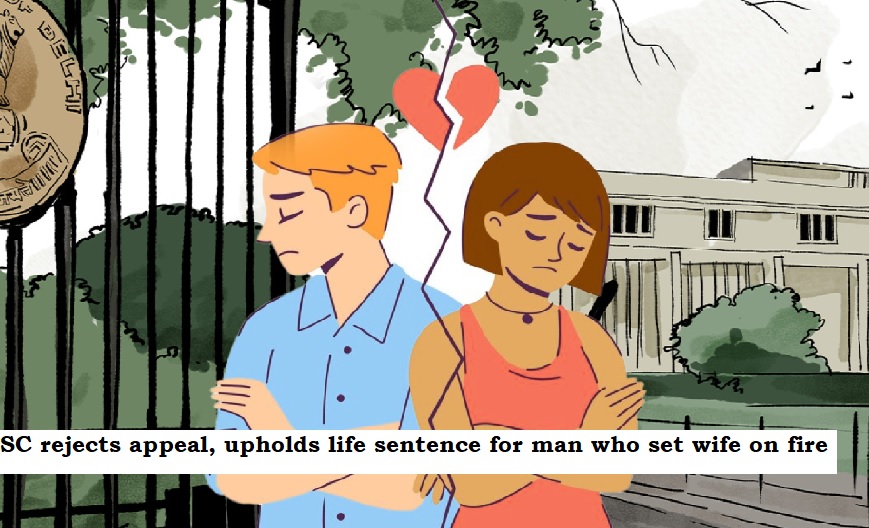


In a recent legal development that underscores the gravity of domestic violence, the Supreme Court has affirmed a life sentence for a man convicted of murdering his wife by setting her on fire. The case involved an appeal challenging both the conviction and the life imprisonment sentence imposed on the accused.
The Supreme Court, in its detailed observations, highlighted the heinous nature of the crime, emphasizing that setting a person on fire constitutes an act of "extreme cruelty." The Court specifically pointed to Section 302 of the Indian Penal Code (IPC), which pertains to the punishment for murder, as applicable in this case.
The legal proceedings unfolded before a Bench comprising Justices Bela M Trivedi and Ujjal Bhuyan. The appellant, seeking reprieve from the life sentence handed down by the lower court, presented various grounds for appeal. However, the apex court, after careful consideration, dismissed the appeal, reinforcing the severity of the crime and the need for stringent consequences.
The tragic incident leading to this legal saga involved the accused deliberately setting his wife on fire, resulting in her untimely death. The Court's characterization of this act as "extreme cruelty" reflects a recognition of the severity of violence within domestic relationships. Such cases bring to light the urgent need for societal awareness and legal measures to address and prevent domestic violence.
The Supreme Court's decision to uphold the life sentence serves as a crucial reaffirmation of the judiciary's commitment to justice, especially in cases involving brutal acts within familial settings. The severity of the punishment underscores the Court's stance on protecting the rights and lives of individuals subjected to domestic violence.
Beyond the confirmation of the life sentence, the Court's order also involved the suspension of the appellant's sentence, adding an additional layer of legal complexity to the proceedings. The specifics of the suspension were not elaborated in the available information, leaving room for further examination of the nuances surrounding this aspect of the case.
The legal landscape surrounding domestic violence is evolving, with courts increasingly recognizing the need for stringent measures to address such offenses. The Supreme Court's reliance on Section 302 of the IPC reflects a commitment to applying existing legal frameworks to punish perpetrators of extreme acts of violence.
In addition to the legal ramifications, this case brings attention to the broader societal issue of domestic violence, particularly violence against women. The Court's acknowledgment of the "extreme cruelty" involved in setting a person on fire serves as a stark reminder of the urgent need for societal changes and interventions to prevent such heinous acts.
While the legal proceedings in this case have reached a conclusion with the Supreme Court's decision, the larger conversation about domestic violence continues. Advocates for women's rights and domestic violence prevention emphasize the importance of a comprehensive approach involving legal, social, and educational measures to address the root causes of such violence.
In conclusion, the Supreme Court's affirmation of the life sentence for the man who set his wife on fire underscores the severity of domestic violence and the legal system's commitment to delivering justice in such cases. This decision sends a powerful message about the consequences perpetrators can face for committing acts of extreme cruelty within the confines of domestic relationships. However, it also highlights the ongoing need for broader societal efforts to prevent and address domestic violence at its core.
TAGS: Supreme Court Life imprisonment Murder conviction Domestic violence Extreme cruelty Indian Penal Code (IPC) Section 302